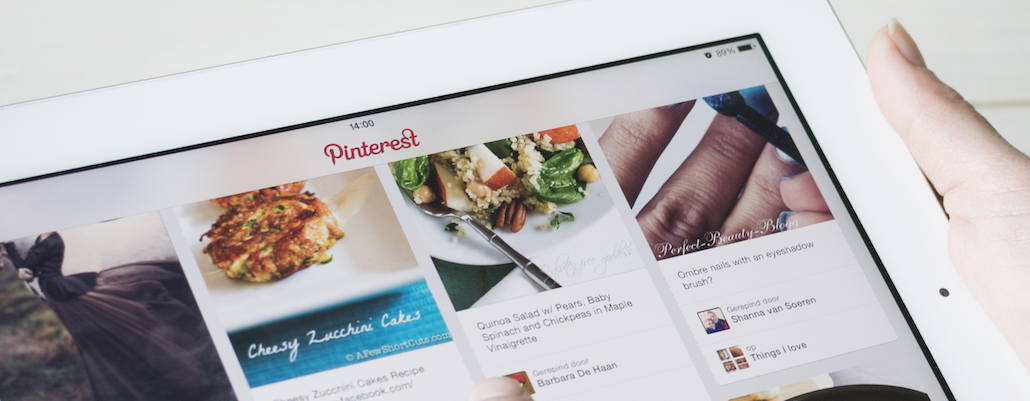Pinterest’s president talks search and getting marketers to buy in

Pinterest is making a big bet that it isn’t too late for it to become a go-to platform for marketers.
After a slow entry into advertising, Pinterest released a slew of new features last year. And it hasn’t slowed down in 2017. Last week, Pinterest rolled out search ads, and yesterday it announced more search tools that could broaden the platform’s e-commerce capabilities.
Digiday sat down with Pinterest’s president, Tim Kendall, to talk about the platform’s expansion into search and how it is pitching itself to marketers. Answers have been edited for length and clarity.
So, is Pinterest a search engine?
We are search and visual discovery that people are using in ways that are akin to traditional search. But there are some differences [between Pinterest and Google]. We do 2 billion guided search queries a month. Ninety-seven percent of them do not have brands associated with them. When people are on Pinterest, they search for “sneakers.” When they are on other engines they search “Nike sneakers” or “Adidas sneakers.” The person searching for sneakers on Pinterest hasn’t made a decision of who they are going to buy it from. That’s the holy grail; I want to reach someone before they made the decision but is in market for my product.
Do you feel threatened by the duopoly that is alleged to be sucking up all the ad growth?
On a pure time basis, it might seem like some of these services are eating the world. But when it comes to time spent planning my life, people are spending a significant and growing amount of their time on Pinterest doing that, and that is where marketers want to be.
The high intent is a good talking point. What’s the way to get buyers spending more?
People [aside from those focused on conversions] need to know that what they are doing on Pinterest is driving offline sales. If you look at predecessor companies, that path takes time. Because you have to prove and get people to believe it.
Buyers have said that they’ve cooled on Pinterest, and The Wall Street Journal recently reported that marketers are pushing Pinterest to ramp up advertising. How do you get advertisers on board when reports like this come out?
Results and launching more solutions that deliver. Two days after that article came out, we announced search on Pinterest and a partnership with Kenshoo. If you are a search marketer, you use Kenshoo. The search world and the performance world gets that. I would also contend that article picked up on dated talk from two years ago. We launched 11 products last year between March and the end of the year. The data don’t support the point of view that we are moving slowly.
Other than the high intent, is there anything about Pinterest in particular that is different than other platforms that you try to get across to buyers?
Other platforms have said we are OK with a mildly interruptive [ad] service, because they don’t have any choice. The only other service where ads are not interruptive and congruent with what you are doing is search. And I think we have a shot to do it with search and with display in your home feed. The ads are often indistinguishable because you are here looking for products and services. Showing news and social content, it is hard to put [ads] in there and not have it be interruptive.
More in Marketing

YouTube’s upmarket TV push still runs on mid-funnel DNA
YouTube is balancing wanting to be premium TV, the short-form powerhouse and a creator economy engine all at once.

Digiday ranks the best and worst Super Bowl 2026 ads
Now that the dust has settled, it’s time to reflect on the best and worst commercials from Super Bowl 2026.

In the age of AI content, The Super Bowl felt old-fashioned
The Super Bowl is one of the last places where brands are reminded that cultural likeness is easy but shared experience is earned.








